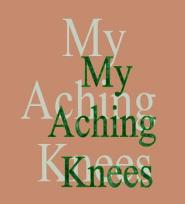This article written by Mike Stobbe of the Associated Press brings some valid points. One of these points about whether or not to let obese people and smokers die prematurely certainly goes against our value on life in my mind. Anyway, everyone will decide for themselves.
NEW YORK (AP) — Faced with the high cost of caring for smokers and overeaters, experts say society must grapple with a blunt question: Instead of trying to penalize them and change their ways, why not just let these health sinners die prematurely from their unhealthy habits?
Annual health care costs are roughly $96 billion for smokers and $147 billion for the obese, the government says. These costs accompany sometimes heroic attempts to prolong lives, including surgery, chemotherapy and other measures.
But despite these rescue attempts, smokers tend to die 10 years earlier on average, and the obese die five to 12 years prematurely, according to various researchers' estimates.
And attempts to curb smoking and unhealthy eating frequently lead to backlash: Witness the current legal tussle over New York City's first-of-its-kind limits on the size of sugary beverages and the vicious fight last year in California over a ballot proposal to add a $1-per-pack cigarette tax, which was ultimately defeated.
"This is my life. I should be able to do what I want," said Sebastian Lopez, a college student from Queens, speaking last September when the New York City Board of Health approved the soda size rules.
Critics also contend that tobacco- and calorie-control measures place a disproportionately heavy burden on poor people. That's because they:
—Smoke more than the rich, and have higher obesity rates.
—Have less money so sales taxes hit them harder. One study last year found poor, nicotine-dependent smokers in New York — a state with very high cigarette taxes — spent as much as a quarter of their entire income on smokes.
—Are less likely to have a car to shop elsewhere if the corner bodega or convenience store stops stocking their vices.
Critics call these approaches unfair, and believe they have only a marginal effect. "Ultimately these things are weak tea," said Dr. Scott Gottlieb, a physician and fellow at the right-of-center think tank, the American Enterprise Institute.
Gottlieb's view is debatable. There are plenty of public health researchers that can show smoking control measures have brought down smoking rates and who will argue that smoking taxes are not regressive so long as money is earmarked for programs that help poor people quit smoking.
And debate they will. There always seems to be a fight whenever this kind of public health legislation comes up. And it's a fight that can go in all sorts of directions. For example, some studies even suggest that because smokers and obese people die sooner, they may actually cost society less than healthy people who live much longer and develop chronic conditions like Alzheimer's disease.
So let's return to the original question: Why provoke a backlash? If 1 in 5 U.S. adults smoke, and 1 in 3 are obese, why not just get off their backs and let them go on with their (probably shortened) lives?
Because it's not just about them, say some health economists, bioethicists and public health researchers.
"Your freedom is likely to be someone else's harm," said Daniel Callahan, senior research scholar at a bioethics think-tank, the Hastings Center.
Smoking has the most obvious impact. Studies have increasingly shown harm to nonsmokers who are unlucky enough to work or live around heavy smokers. And several studies have shown heart attacks and asthma attack rates fell in counties or cities that adopted big smoking bans.
"When you ban smoking in public places, you're protecting everyone's health, including and especially the nonsmoker," said S. Jay Olshansky, a professor at the University of Illinois-Chicago's School of Public Health.
It can be harder to make the same argument about soda-size restrictions or other legislative attempts to discourage excessive calorie consumption, Olshansky added.
"When you eat yourself to death, you're pretty much just harming yourself," he said.
But that viewpoint doesn't factor in the burden to everyone else of paying for the diabetes care, heart surgeries and other medical expenses incurred by obese people, noted John Cawley, a health economist at Cornell University.
"If I'm obese, the health care costs are not totally borne by me. They're borne by other people in my health insurance plan and — when I'm older — by Medicare," Cawley said.
From an economist's perspective, there would be less reason to grouse about unhealthy behaviors by smokers, obese people, motorcycle riders who eschew helmets and other health sinners if they agreed to pay the financial price for their choices.
That's the rationale for a provision in the Affordable Care Act — "Obamacare" to its detractors — that starting next year allows health insurers to charge smokers buying individual policies up to 50 percent higher premiums. A 60-year-old could wind up paying nearly $5,100 on top of premiums.
The new law doesn't allow insurers to charge more for people who are overweight, however.
It's tricky to play the insurance game with overweight people, because science is still sorting things out. While obesity is clearly linked with serious health problems and early death, the evidence is not as clear about people who are just overweight.
That said, public health officials shouldn't shy away from tough anti-obesity efforts, said Callahan, the bioethicist. Callahan caused a public stir this week with a paper that called for a more aggressive public health campaign that tries to shame and stigmatize overeaters the way past public health campaigns have shamed and stigmatized smokers.
National obesity rates are essentially static, and public health campaigns that gently try to educate people about the benefits of exercise and healthy eating just aren't working, Callahan argued. We need to get obese people to change their behavior. If they are angry or hurt by it, so be it, he said.
"Emotions are what really count in this world," he said.




